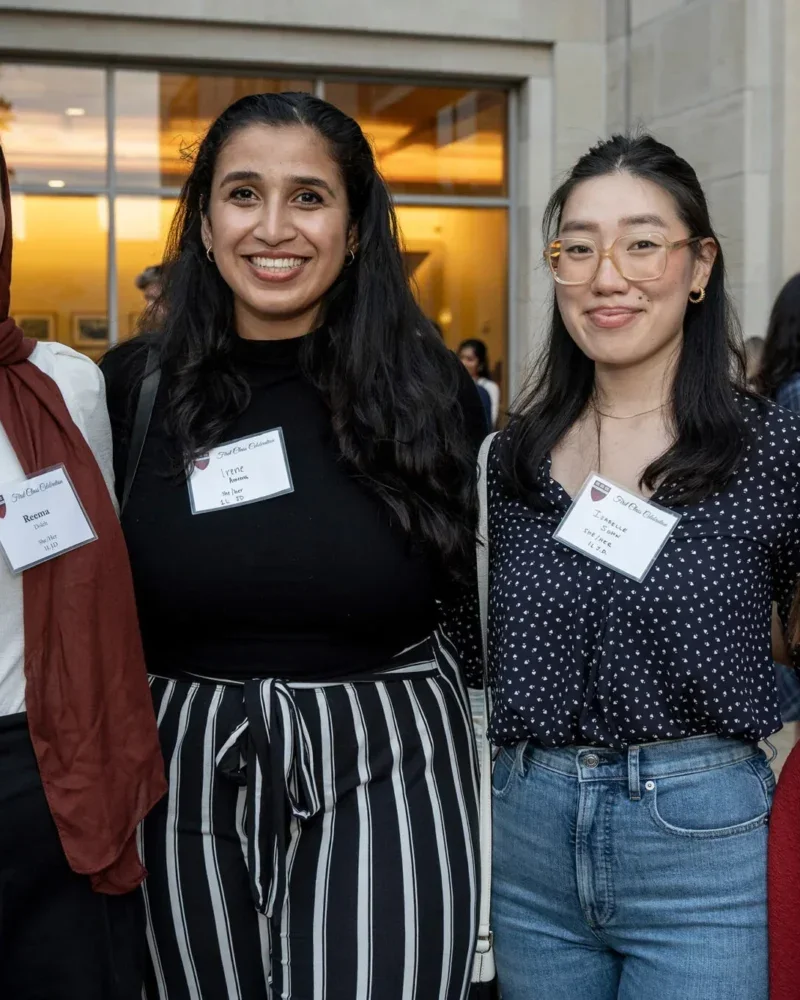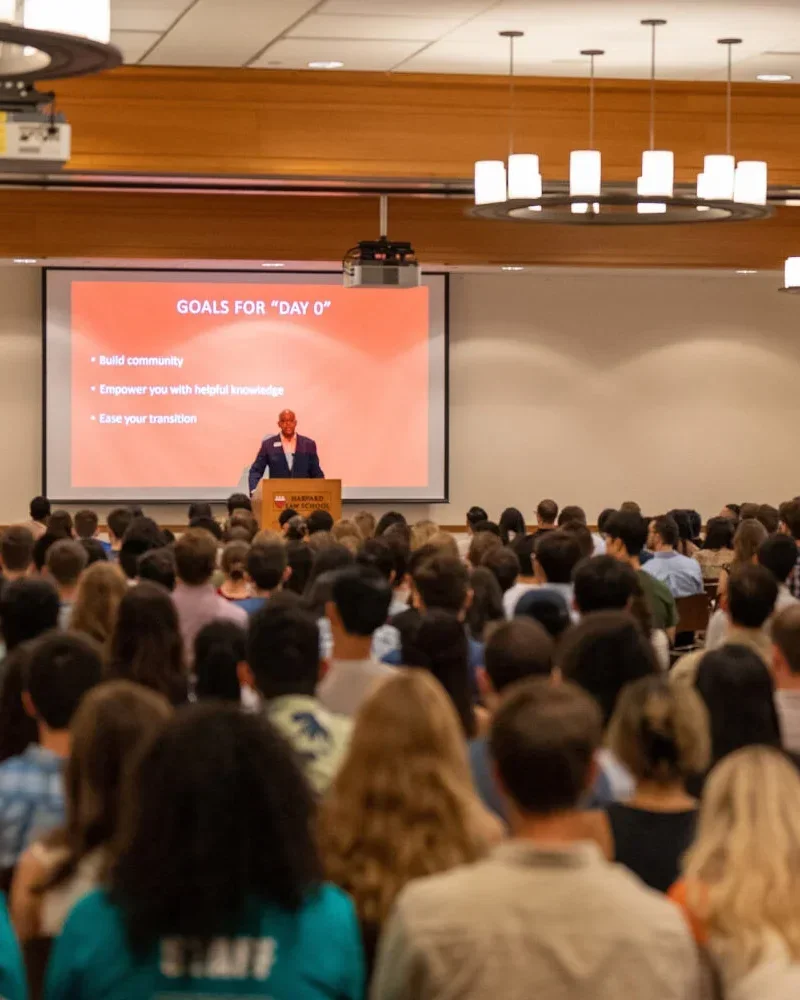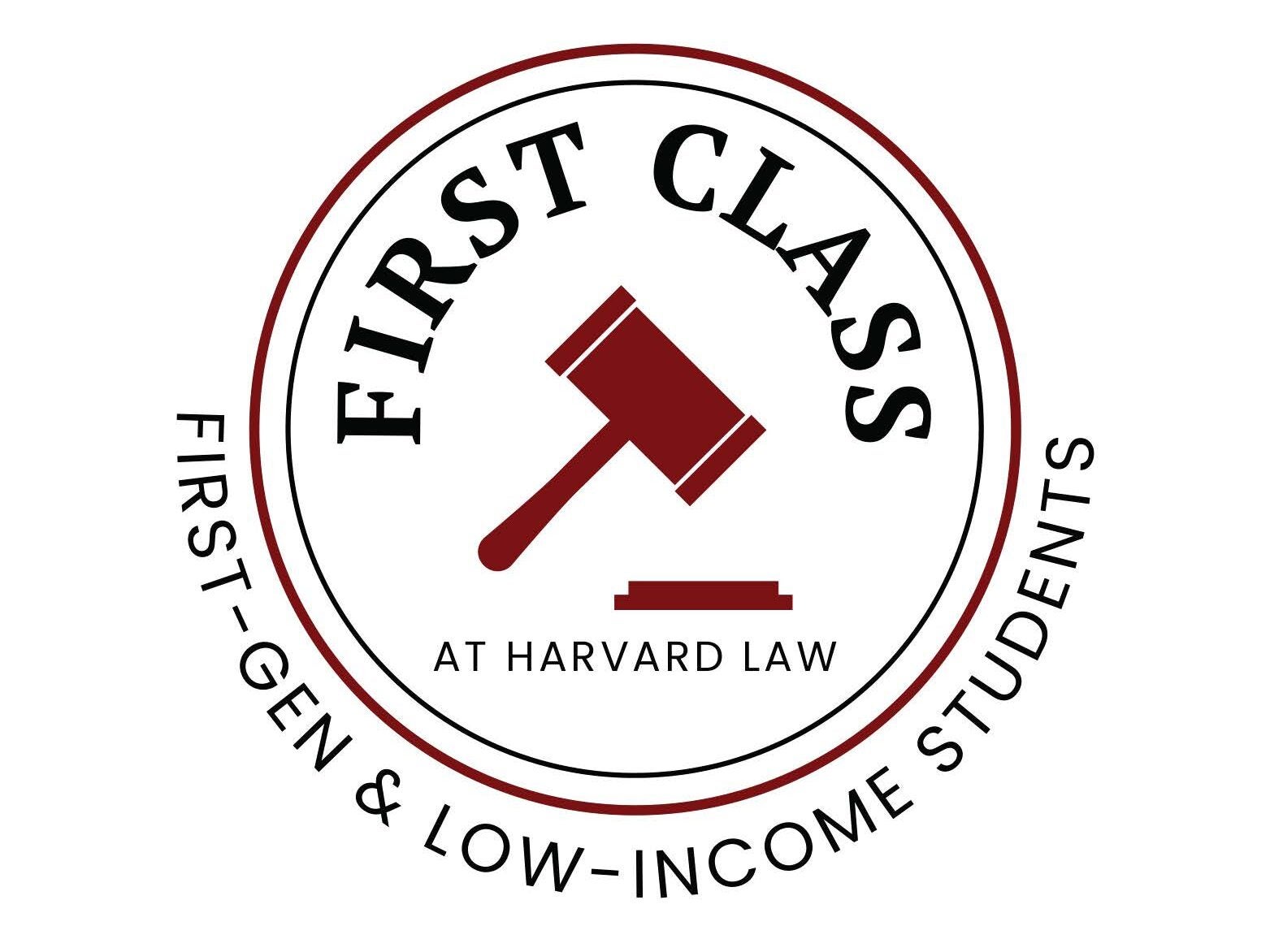Harvard Law School welcomes applications from students who identify as first-generation and/or low-income college students. Below, you will find profiles of first-generation HLS students, along with mentorship, financial, and academic resources that may be helpful as you explore the Harvard Law School community.
Application Considerations
The application for the J.D. Program at Harvard Law School includes a box on the application form for students to share if they identify as a first-generation college student, and whether they are or were eligible for a federal need-based Pell Grant at any time during their undergraduate enrollment.
You are welcome to check those boxes and share any further information in your Written Statements or an addendum.
Application Resources
J.D. Admissions Events
The J.D. Admissions Office typically organizes events for first-generation students to learn more about the application process. View our Connect with Admissions page for a list of upcoming events.
Harvard Law School Application Fee Waiver
LSAC/CAS Application Fee Waiver
Applicants who lack the financial resources to pay the $90.00 HLS application fee, and who would experience economic hardship if required to pay that fee, may complete this form to request a fee waiver.
The HLS Fee Waiver Request Form typically opens on September 1 and closes on February 1.
The application fee is waived for applicants who have been approved through the Law School Admission Council (LSAC) Fee Waiver Program.
If you are granted an LSAC Fee Waiver, we do not require the additional completion of our HLS Fee Waiver Request Form. You will not see the waiver until you come to the check-out page right before submitting the application.

The Power of Mentorship as a First-Generation Student
Across student organizations at HLS, there are immense opportunities to find mentorship. Almost every student group from First Class to the Women’s Law Association offers a formal mentorship program.
Harvard Law School Resources

Day 0
“Day 0” is an in-person program held during Orientation for 1Ls focused primarily on supporting students with no prior exposure to law school or the legal industry through familial connections or other avenues.
First Class

First Class is an inclusive and intersectional space for first-generation college students and students from low-income backgrounds to share and affirm our experiences, advocate for our communities, attend to our well-being, advance accessibility within the legal profession, and support our career aspirations
-
Opportunity Fund
Opportunity Fund enables some of our J.D. students with the highest financial need to attend tuition-free for all three years.
-
Pre-Law Programs
Harvard Law School’s pre-law programs expand opportunities for students from groups that are underrepresented in the legal profession and help them become competitive applicants to, and students at, the nation’s leading law schools.
-
Academic Advising and Mentorship
Harvard Law School offers students a variety of advising and mentorship resources for navigating life as a law student, selecting courses and clinics, and achieving career goals.
-
Zero-L
Zero-L is an online course designed to ensure that everyone can gain the foundational legal knowledge needed to thrive in law school and to enjoy a deeper understanding of how the U.S. legal system works in everyday life.